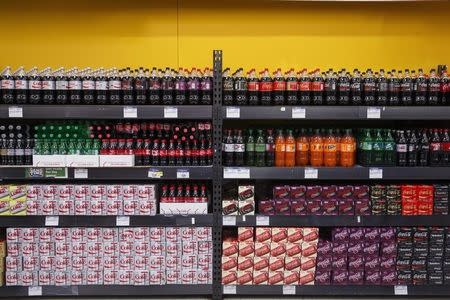Slovakia takes aim at food makers for double standards on quality

BRATISLAVA (Reuters) - Slovakia called out several international food companies on Tuesday for what it called the unethical practice of using inferior ingredients in products intended for Slovakia compared with the food sold in its richer western neighbours. Consumer groups have complained that popular brands use poorer-quality ingredients and less actual food in central and eastern Europe than are used in Germany and Austria. But they have had little recourse, since the European Union only requires that the packaging contain a clear list of all ingredients. Slovakia's Agriculture Ministry said on Tuesday it wanted to join other countries in lobbying within the EU to stop companies from offering identical brands and packaging but different lists of ingredients in "old" and "new" EU members. "We have a single market, and it's unethical to create two classes of customers," Agriculture Minister Gabriela Matecna told a news conference. Half of 22 products bought in Bratislava, the Slovak capital, and two Austrian towns across the border, less than 20 km (13 miles) away, differed in taste, looks and composition, the ministry said, according to laboratory tests by the national food quality watchdog. For example, the orange drink sold by German Rewe Group in Slovakia did not contain any actual orange juice, unlike that sold in Austria, and had more additives and stabilisers, the tests showed. "The argument that consumers in different regions prefer different tastes won't stand, because Slovak consumers definitely don't prefer artificial sweeteners and additives or lower content of meat compared to Austrian products," Matecna said. Coca-Cola sold in Slovakia was sweetened by cheaper glucose-fructose syrup instead of the sugar found in the Austrian version, the tests cited by the ministry found. Most of the food companies cited could not immediately be reached for comment. But Coca Cola Slovakia spokesman Marian Pavelka said its different sweeteners are "both commonly used in the food industry across the world, including the country of (Coca Cola's) origins, the USA." Various shopping tests done by media in the neighbouring Czech Republic showed that prices of a number of food items were also lower in the Czech Republic and Slovakia than prices in Austria and Germany. Poland usually came out the cheapest. However, average household net-adjusted disposable income per capita is $31,667 a year in Austria, almost double Slovakia's $18,534 a year, OECD data from 2015 shows. (Reporting By Tatiana Jancarikova, editing by Larry King)

